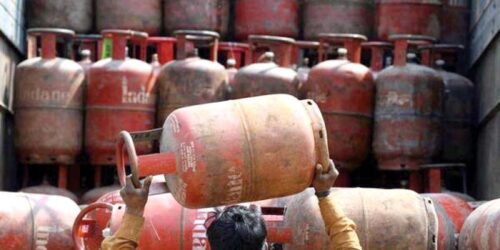The Petroleum Division has taken another U-turn in the new draft of the LPG Policy 2021, as it proposed local LPG price of around $80 over the international price.
This means that LPG importers will be able to charge $80 above CP price. Saudi Aramco sets its propane term contract price, which is then followed by Pakistan.
Now, the Petroleum Division has called a meeting of stakeholders, mainly dominated by LPG importers, on Sunday (today) to discuss the matter. In its earlier notification of the meeting, the Petroleum Division had called a meeting of only state-run companies. The Petroleum Division has not called several major stakeholders.
The Oil and Gas Development Company Limited (OGDCL) managing director had raised several questions on the new LPG Policy. Following this, the Petroleum Division did not invite the OGDCL chief in a recent meeting despite OGDC being the country’s largest LPG producer.
However, in a revised draft, DG LP has proposed to take cost and freight (C&F) price to determine the price of local LPG. C&F price means a further increase of $50 to $80 per metric ton over and above CP price, sources said.
Read: Meeting to discuss LPG policy today
The LPG marketing companies in Pakistan have submitted several requests to the relevant ministry that the industry is suffering continuous losses due to the government’s biased policies favouring imports over local production of LPG.
In the revised draft, just to facilitate importers, the local prices, which were previously linked with international CP price that is highest benchmark in the world, have now been changed to C&F price that means a further increase of $50 to $80 over and above CP price. On the other hand, the Petroleum Division has proposed to waive income tax on LPG imports to further facilitate importer recommendations.
The local LPG industry has opposed this move saying that it is not justified and required as its already adjustable and any further waiver will result in significant reduction of government revenues and also open avenues for tax evasions.
Moreover, imported LPG is primarily brought from Iran at CP $180 to $200 per ton which is already Rs23,000 to Rs25,000 per ton cheaper than locally produced LPG.
In order to balance the cost of local and imported LPG, the government should impose regulatory duty on import of LPG at Rs20,000 per ton as 500,000 tons LPG is being imported from Iran, said the LPG industry. The officials added that this will provide Rs10 billion worth additional revenue to government exchequer. The local industry was of the view that LPG is a poor man’s fuel and it is essential to keep its prices at a reasonable and affordable level, which was not reflected in the LPG Policy.
In the last Economic Coordination Committee (ECC) meeting it was emphasised to take comments from all stakeholders but again the draft was circulated only to three selected companies, which are directly under the ambit of the Petroleum Division. Important segments like the Federal Board of Revenue, Oil and Gas Regulatory Authority and other stakeholders were not included in the process.
The LPG industry also said that the monthly LPG auction suggested in the new policy is not feasible and is dangerous from a consumer point of view.
They further added that investments in the LPG sector will also be adversely affected due to the one-sided policy favouring importers and penalising local investors.
Read more: Local LPG producers seek level playing field
During various meetings to address the taxation disparity between local and imported LPG producers, despite being asked by the Petroleum Division, the LPG importers were reluctant to provide record of invoices.
The local industry has urged the prime minister to initiate an inquiry in this regard as all draft summaries are targeted to provide further incentive to importers at the cost of billions of rupees worth losses to local producers, which are 95% government-owned.
In a letter to Special Assistant to PM on Petroleum Tabish Gauhar, FPCCI Standing Committee on LPG Convenor Ali Haider said that the policy proposes to announce monthly ceiling price of LPG equal to the landed cost (C&F) for imports through sea based on Saudi CP, which would make it more difficult for local supply chain to compete in a market dominated by LPG importers.
The LPG importers have the added incentive of zero advance income tax on imports, which enables them to enhance their margins, while local supply chains do not have the same facility. “Therefore, it is requested that there should be an unequivocal implementation of equal taxes and duties on both locally produced and imported LPG, which would create a level playing field in the market,” he added.





